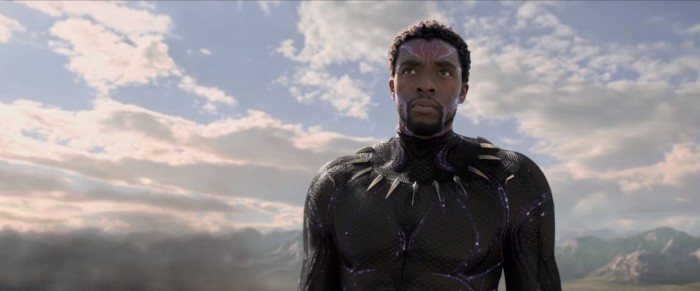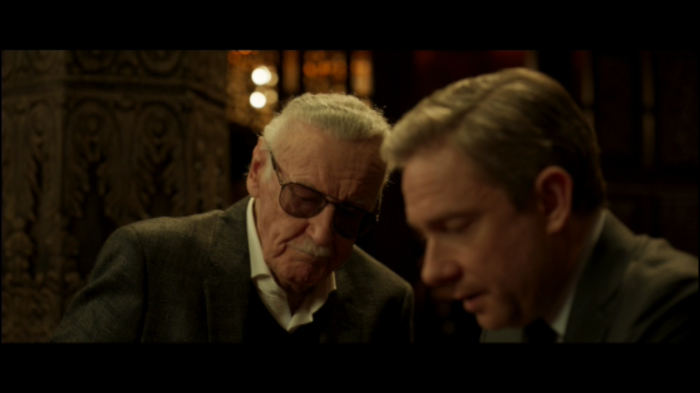
A series of reviews looking at Sylvester Stallone’s two most famous characters, Rocky Balboa and John Rambo, film by film…
Spoiler warning: these reviews reveal plot twists.
The illegitimate son of Apollo Creed asks for Rocky’s help in training to be a professional boxer…
What does Stallone do? For the first time with a movie featuring the character of Rocky Balboa, its star didn’t work on the script. He didn’t direct either, but takes a producing credit. Playing the Italian Stallion for a seventh time, Stallone is pretty impressive in this film; the performance reminds you that, for all the clichés about his slurring and mumbling, he’s not talentless. He was nominated for a Best Supporting Actor Oscar for Creed, and it’s easy to see why… Rocky is now the same age his mentor Mickey was in the first movie and is still running the restaurant he had in 2006’s Rocky Balboa. One day, a young man comes to visit him and reveals he’s the son of Rocky’s old foe/friend Apollo Creed. Adonis is an aspiring boxer and wants Rocky to train him. Rock resists, but is then swayed by the younger man’s hunger and spirit. He trains Adonis at Mickey’s old gym from the previous movies and the sequences neatly echo Rocky’s old regimes. But then Rocky collapses suddenly, and the doctors discover he has non-Hodgkin’s lymphoma. At first, he refuses treatment because he doesn’t have much to live for – his wife has died, his best friend Paulie has died, his son has moved to Canada – but Adonis manages to talk him round. The bond between the two men grows stronger: it’s father/surrogate son, mentor/pupil, friend/friend. The two then prepare for Adonis’s big shot: a fight against the world champion…
Other main characters:
* We first meet Adonis Johnson as an 11-year-old in a juvenile detention centre. Having recently lost his mother, he’s angry and fights with the other boys a lot. He then learns that his biological father was champion boxer Apollo Creed, who died before Adonis was born. Eighteen years later, and now played by Michael B Jordan, he’s got a boring office job in LA but is also earning cash from boxing in Mexico. Unable to ignore his paternal heritage, he quits his job and moves to Philadelphia to seek out his father’s old pal Rocky Balboa. Rocky agrees to train him, and even becomes his landlord. After Rocky falls ill, their relationship becomes moving: Adonis looks after the older man; Rocky encourages and supports him. They then fly to England for a title fight with champion boxer ‘Pretty’ Ricky Conlan, which takes place at football stadium Goodison Park in Liverpool… Jordan is terrific as Adonis, taking a character with anger issues and daddy issues and either too much or too little confidence and making him someone real and sympathetic.
* In 1998, Mary Anne Creed (Phylicia Rashad) seeks out Adonis and tells him he’s the son of her late husband – the famous boxer Apollo Creed. She offers the troubled lad a home, and – in an 18-year period skipped over by the movie – they begin to see each other as mother and son.
* ‘Pretty’ Ricky Conlan (real-life boxer Tony Bellew) is an Everton-supporting fighter from Merseyside and is the current world light heavyweight champion. His reign is due to come to an end because of an upcoming prison sentence. So when he reads in the local newspaper, the Liverpool Echo, that an American upstart called Adonis Johnson is actually the son of the revered Apollo Creed, he wants him to be his final challenger.
* Bianca (Tessa Thompson) is Adonis’s neighbour when he moves into an apartment in Philly. She’s a reasonably successful singer and musician – in fact, Adonis only meets her because he bangs on her door to complain about the loud music. They soon become involved romantically. She’s not happy, however, when the news breaks that Adonis is Apollo’s son. He’d been keeping it under wraps, wanting to prove himself rather than rely on a surname, but she feels betrayed. Thankfully she gets over it.
* Tommy Holiday (Graham McTavish, who Stallone had worked with on 2008’s Rambo) is Conlan’s manager. He flies to Pennsylvania to pitch a Conlan/Adonis fight to Rocky, which would no doubt earn everyone involved a huge amount of cash. His one big condition? Adonis needs to adopt the Creed surname. Adonis reluctantly agrees.
Key scene: Adonis’s first bout under Rocky’s tutelage is against a Philly brawler called Leo Sporino (Gabriel Rosado). Before he enters the ring, there’s the comedy beat of Adonis having to have his taped-up gloves cut off because he needs to take a last-minute shit. Then the entire fight is filmed in one, fluid Steadicam shot that lasts for an astonishing 260 seconds. Beautifully choregraphed, lit and played, it’s the kind of baroque cinema that would have us all swooning if Scorsese or Tarantino had made it. (The next scene has an exhausted Adonis falling asleep on the sofa while watching Skyfall.)
Review: There’s a lovely clash going on here, between Adonis (young, gifted and black, full of attitude and hunger) and Rocky (in his 60s, white, sedate, whimsical and a rather lonely older man who doesn’t understand how the Cloud works). On the face of it, the two characters have nothing in common save for their connections to a man who’s been dead since 1987. And yet, thanks to good, solid writing and two really good performances, there’s a largely unspoken yet intensely strong bond between them. Rather than the kind of schmaltz sloshed all over the similar storyline in Rocky V, Creed makes you care about the characters. The storyline doesn’t rewrite the Marquess of Queensberry rulebook – it’s not far off a remake of the original Rocky from 1976 – but the film punches above its weight. A fine continuation of the Rocky series.
Eight toughest opponents you’re ever going to have to face out of 10
Next: Creed II

